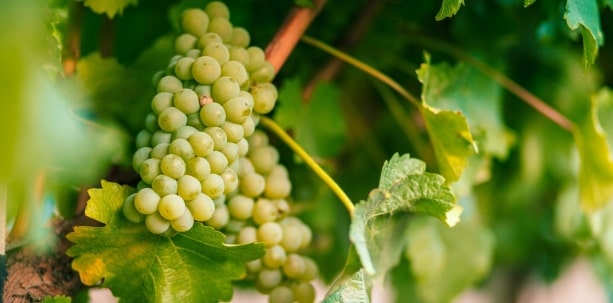THE GRAPE

Assyrtiko is one of Greece`s signature white wine grape varieties, used for both dry and sweet wine. It reaches its apogee in the island of Santorini (where it was first planted – currently 70% of the island’s vineyard area). It yields a bone-dry, steely wine that has deliciously concentrated citrus aromas mixed with an earthy, mineral aftertaste evocative of the volcanic soil of Santorini.
Uniquely, the vines are cultivated in low basket shaped crowns, pinned to the ground, for protection from the often fierce winds dominating the climate in Santorini. Coming off the sea, the nocturnal fog brings much needed water to the vines during the dry, hot summer season and this, coupled with the cooling northerly winds provide the right growing conditions for the grape to thrive.
Assyrtiko is highly resistant to most grape diseases and this partly explains why it been widely re-planted throughout appellations in Greece, such as in Paros, Naxos, Crete, and in smaller quantities in Attica, Drama, Epanomi, Khalkidhiki and Hromitsa, Drama.
Owing to its pronounced mineral profile, Assyrtiko stands up well for blending with grapes such as Sauvignon Blanc, Sémillon and the indigenous Greek white grape Malagousia.
These are wines to be enjoyed young or aged; the ideal complement to delicate dishes, fish, seafood and, surprisingly, even grilled meat dishes.
More famously, Assyrtiko is paired with the aromatic Aidani and Athiri white grapes for the production of a distinctive, naturally sweet wine called Vinsanto (derivative of the name Santorini), known since the Byzantine times.
Vinsanto can be naturally sweet or fortified and must be barrel-aged for a minimum of 2 years. The opulently sweet Vinsantos display a deep amber colour, a thrilling nose of crème brûlée’, chocolate and dried apricots and a palate of dates and dried figs.

Show more







